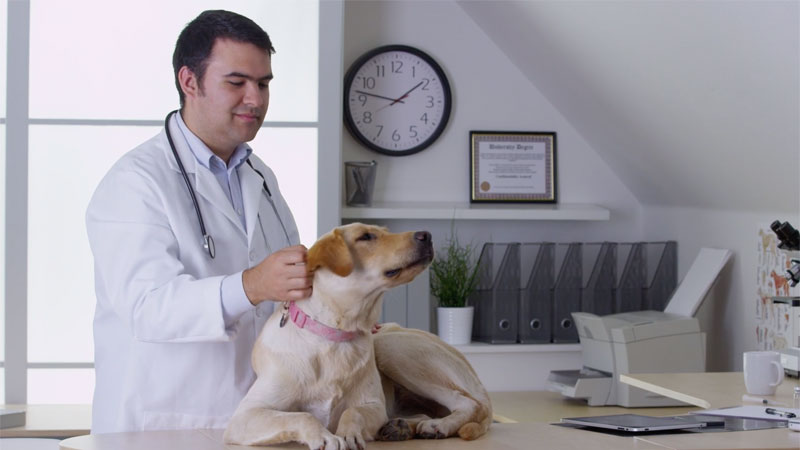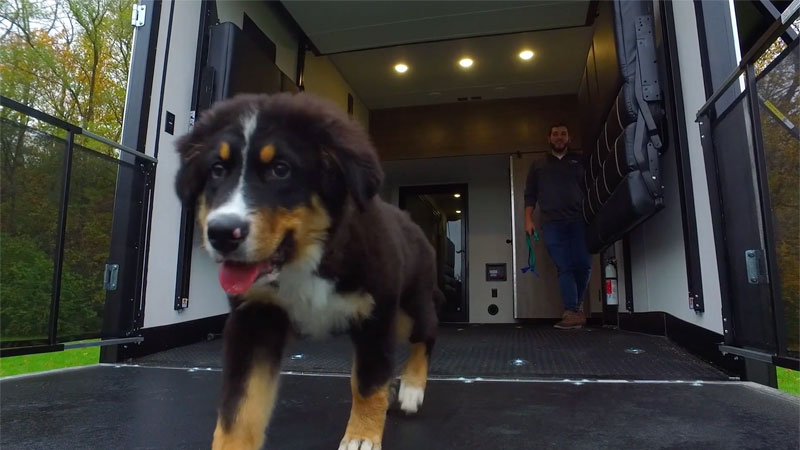rving with pets
When Your Dog Ingests Poison or Other Non-Dog Food Items
I’m Dr. Fitz, and this is Sammy. Does your dog eat things he shouldn’t? Unfortunately, this is a common problem that veterinarians deal with on an almost daily basis. Dogs eat everything from socks, rocks, human medication, and everything in between. Some of these things can pass through without causing too much of a problem. However, some items can be life threatening for your dog.
In this episode, I’m gonna discuss common items that your dog may eat, and what you should do if it happens to you. The main worry we have as veterinarians is is the item toxic? For example, your dog may eat animal bait that’s been left out. Usually these baits are really tasty and all too enticing for your pet. Dogs also have a habit of finding their way into our prescription medications or over-the counter pain relievers. In any of these situations, we want the item out of the stomach as soon as possible.
A little later, I’ll discuss how this is done, and what you can do when you’re traveling. Whether or not your pet vomits the item, you should get in contact with a veterinarian or pet poison control immediately. Time is of the essence in these cases. If you have it, the label that came with the bait or the medication and how much of it that you think your pet ate can be extremely helpful. Keep in mind that some baits and medications can be life threatening for your pet. Generally, there will be some type of blood work needed, and potentially hospitalization, depending on the situation.
 Another common toxin that pets find extremely tasty is antifreeze. Antifreeze tastes very sweet to your pet, but can be deadly with only a few tablespoons. Especially if you’re traveling in an RV, make sure that your antifreeze is put away, and you have thoroughly cleaned up any spills. You can try to make your pet vomit after they drink antifreeze, but getting them to a veterinarian for testing is vital. Antifreeze can cause kidney failure within a matter of days, and once your pet starts to feel sick, their likelihood for survival is lower. With antifreeze, prevention is the best medicine by keeping it out of reach of your pet.
Another common toxin that pets find extremely tasty is antifreeze. Antifreeze tastes very sweet to your pet, but can be deadly with only a few tablespoons. Especially if you’re traveling in an RV, make sure that your antifreeze is put away, and you have thoroughly cleaned up any spills. You can try to make your pet vomit after they drink antifreeze, but getting them to a veterinarian for testing is vital. Antifreeze can cause kidney failure within a matter of days, and once your pet starts to feel sick, their likelihood for survival is lower. With antifreeze, prevention is the best medicine by keeping it out of reach of your pet.
Another worry we have as veterinarians is will this item get stuck? Sometimes we get lucky, and small items like socks, underwear, or small pebbles can pass through. But more often than not, your smelly hiking socks that your dog just had to eat, or that tasty-looking rock over there gets stuck. A blockage of the GI tract will make your pet very sick. They’ll usually vomit, stop eating and defecating, and become extremely lethargic. Sometimes we can make your pet vomit the item back up, or give them a bulky meal to help the item pass through. However, you should contact your veterinarian for advice based on the individual situation. For instance, if an item has sharp edges, it may cause more damage coming out than it did going in. Every situation is different.
 So, how can you make your pet vomit when they have eaten something bad? In a season one episode of “Paws on Board,” I detailed items you should have in a pet first-aid kit. Included in that kit was 3% hydrogen peroxide and a syringe. The peroxide will be used as a stomach irritant to make your dog vomit their stomach contents. This can be life saving if you’re not able to get to a veterinarian quickly. The general dose of peroxide is about one teaspoon per 5 pounds of body weight. But we generally don’t give more than three tablespoons at a time. Once you give the dose, wait about 15 minutes. If your dog has not vomited, you can repeat the dose one more time. If your pet still does not vomit, bring them to a veterinarian, as we have other medications that can more effectively cause vomiting. Keep in mind that inducing vomiting is usually only effective within the first few hours after ingestion. So, if it’s been longer than that, your pet should be brought in for evaluation. Some final notes, you should not induce vomiting if your pet is acting sleepy or lethargic, as this can be very dangerous for them. You should also not induce vomiting if your pet has ingested chemicals such as bleach or other strong cleaning solutions. These can actually cause serious burns on their way back out. As I said earlier, our canine friends love to eat a variety of things, which make every situation different. When in doubt, contact a veterinarian or reach out to ASPCA Pet Poison Control at 888 426-4435. For more information about traveling safely with your pets, visit rvingtoday.tv.
So, how can you make your pet vomit when they have eaten something bad? In a season one episode of “Paws on Board,” I detailed items you should have in a pet first-aid kit. Included in that kit was 3% hydrogen peroxide and a syringe. The peroxide will be used as a stomach irritant to make your dog vomit their stomach contents. This can be life saving if you’re not able to get to a veterinarian quickly. The general dose of peroxide is about one teaspoon per 5 pounds of body weight. But we generally don’t give more than three tablespoons at a time. Once you give the dose, wait about 15 minutes. If your dog has not vomited, you can repeat the dose one more time. If your pet still does not vomit, bring them to a veterinarian, as we have other medications that can more effectively cause vomiting. Keep in mind that inducing vomiting is usually only effective within the first few hours after ingestion. So, if it’s been longer than that, your pet should be brought in for evaluation. Some final notes, you should not induce vomiting if your pet is acting sleepy or lethargic, as this can be very dangerous for them. You should also not induce vomiting if your pet has ingested chemicals such as bleach or other strong cleaning solutions. These can actually cause serious burns on their way back out. As I said earlier, our canine friends love to eat a variety of things, which make every situation different. When in doubt, contact a veterinarian or reach out to ASPCA Pet Poison Control at 888 426-4435. For more information about traveling safely with your pets, visit rvingtoday.tv.
Tune in next time for more pet health information. I’m Dr. Fitz, this is Sammy, thanks for watching “Paws on Board.”



